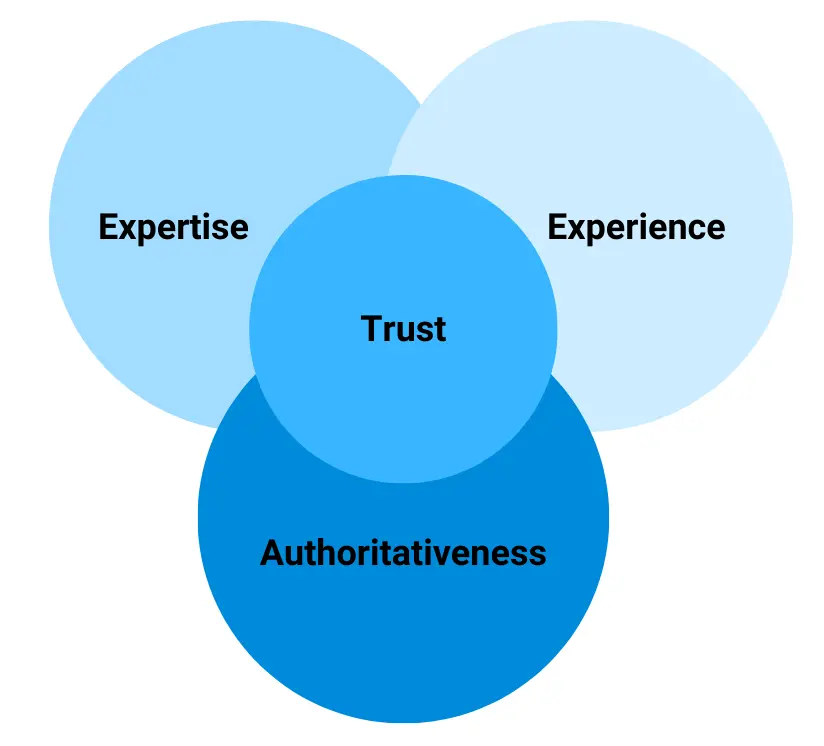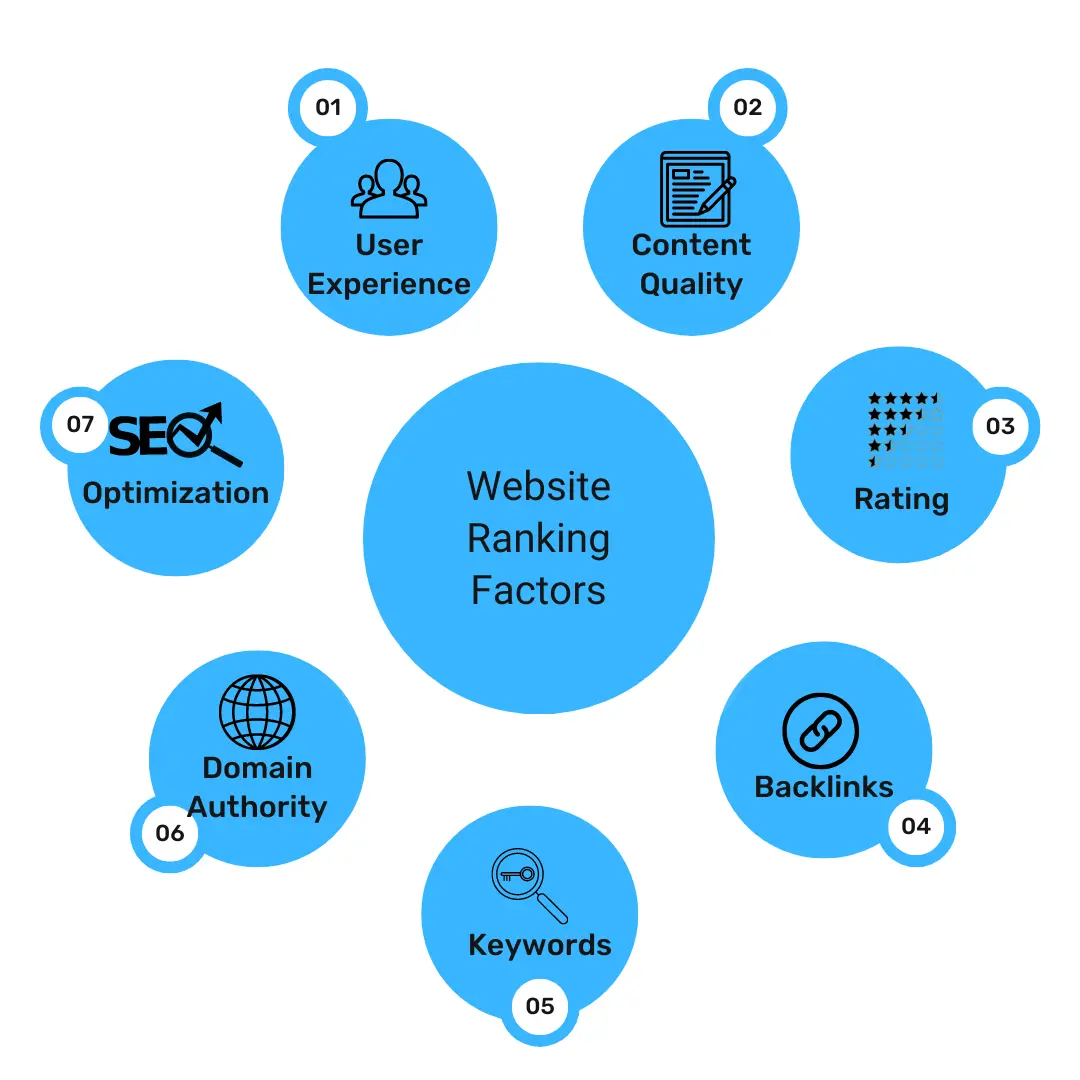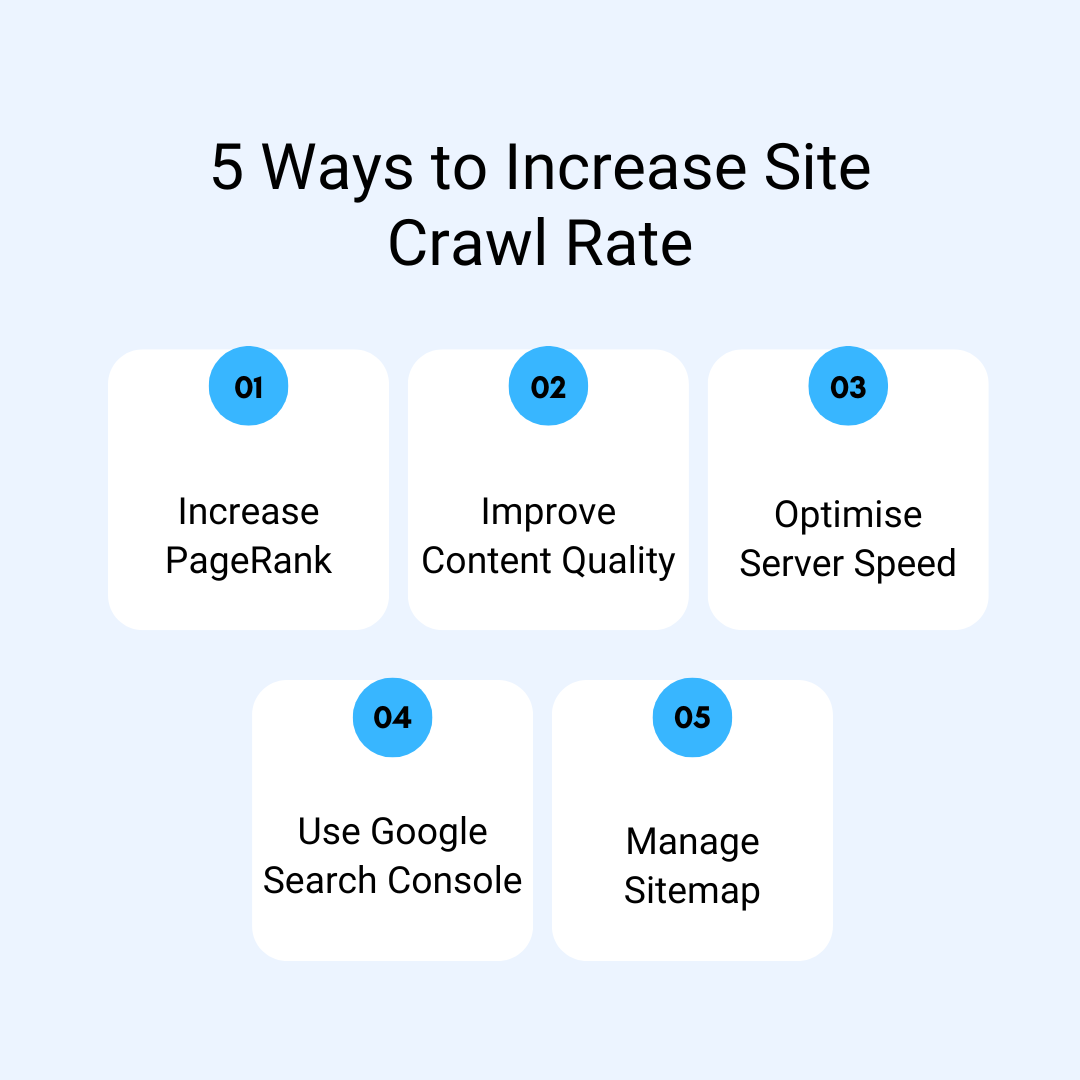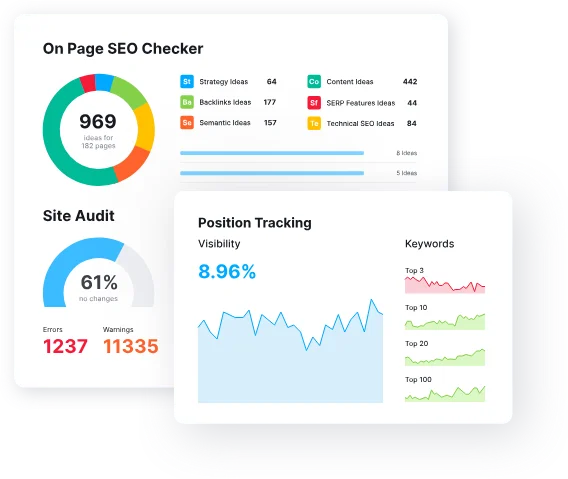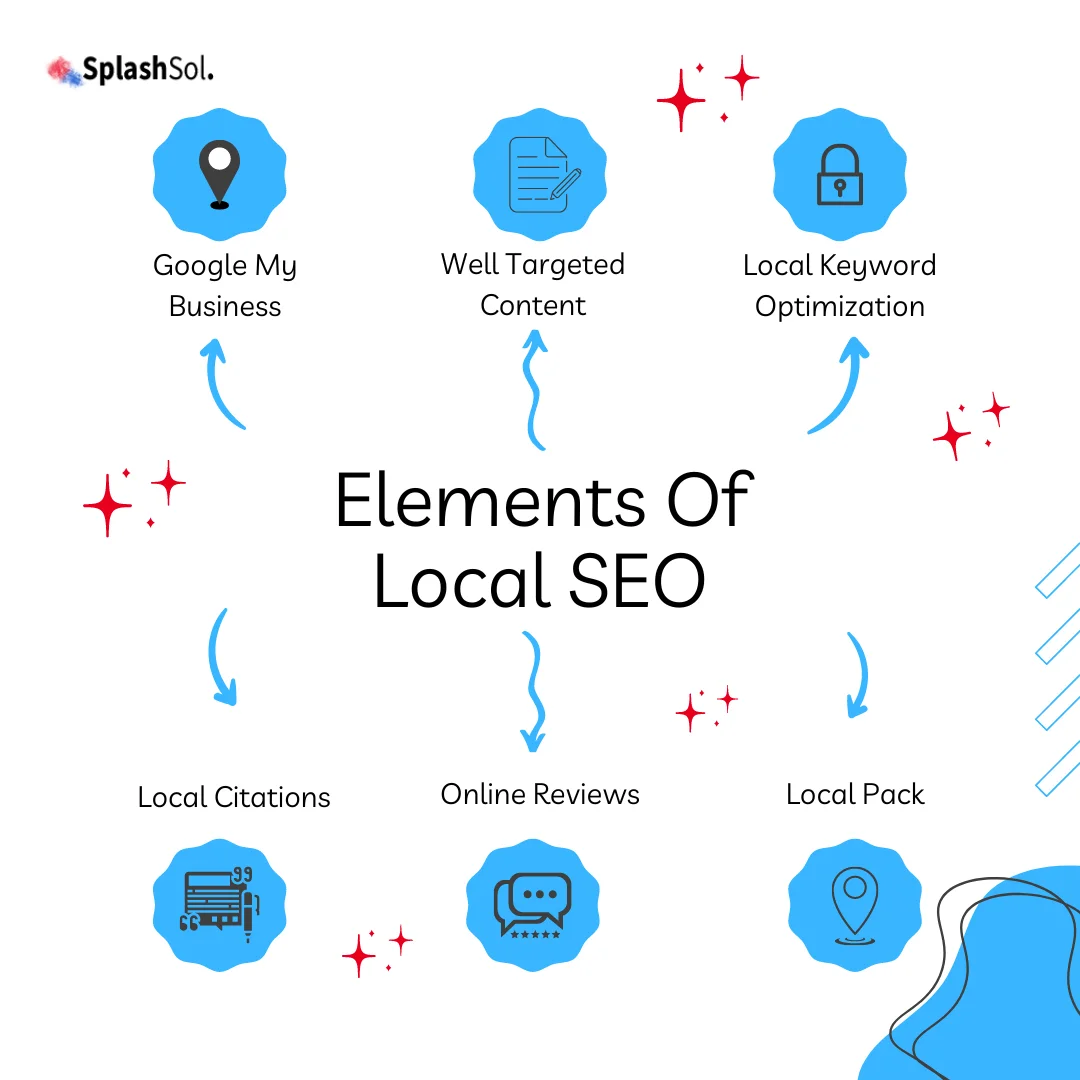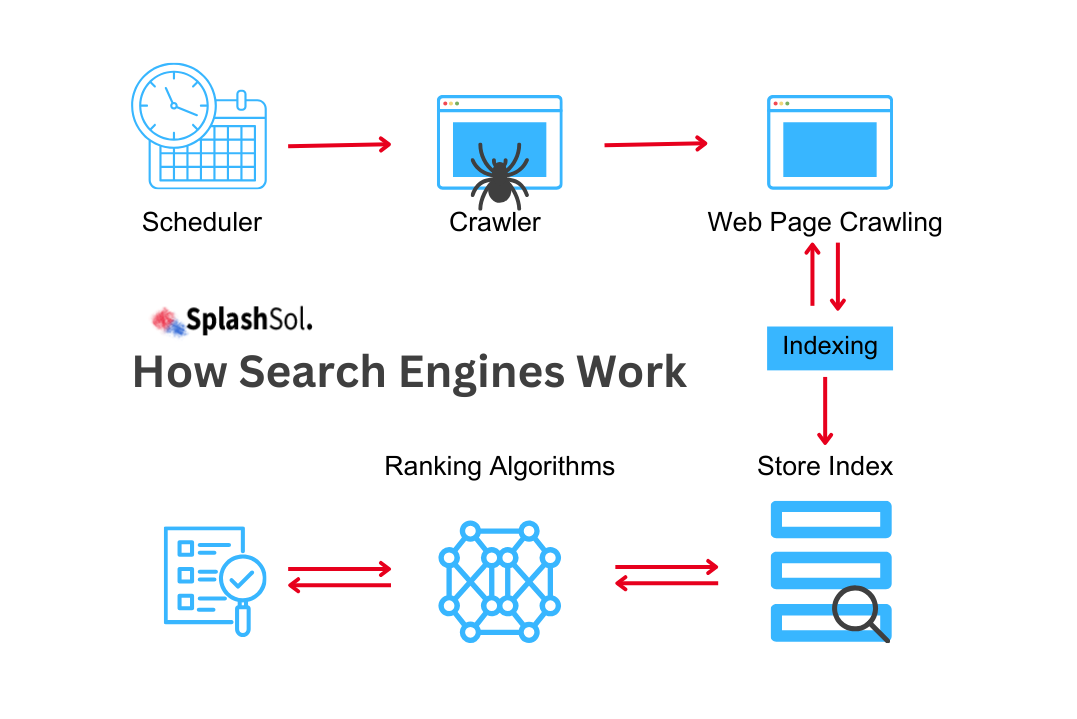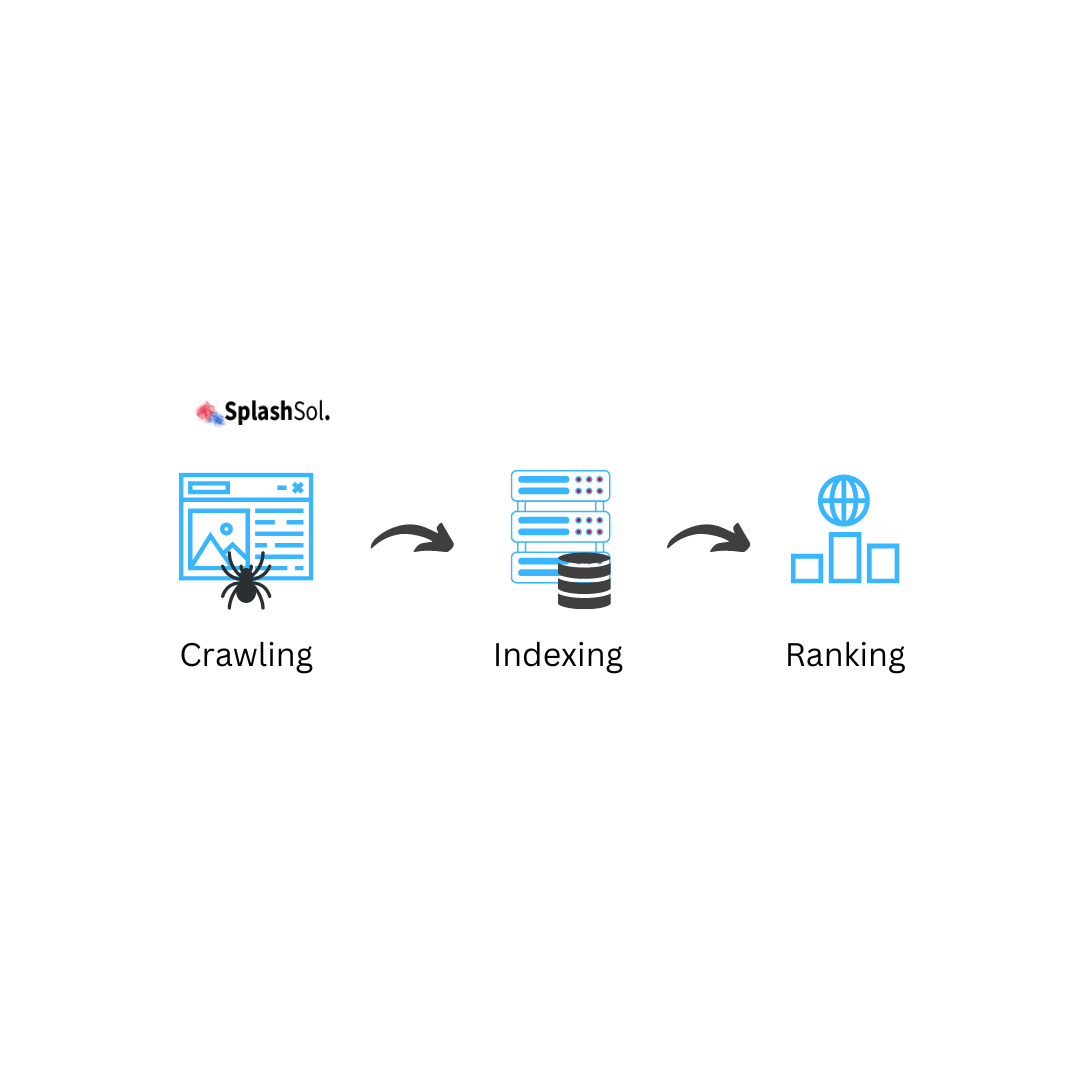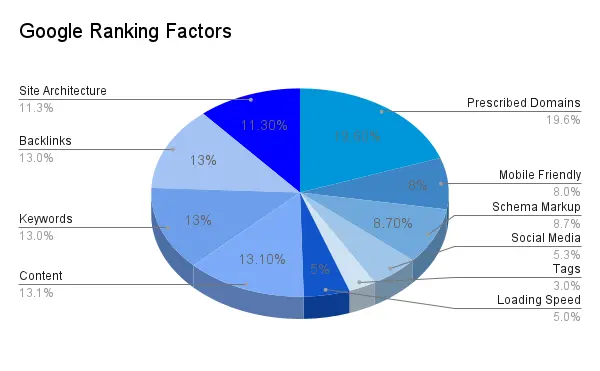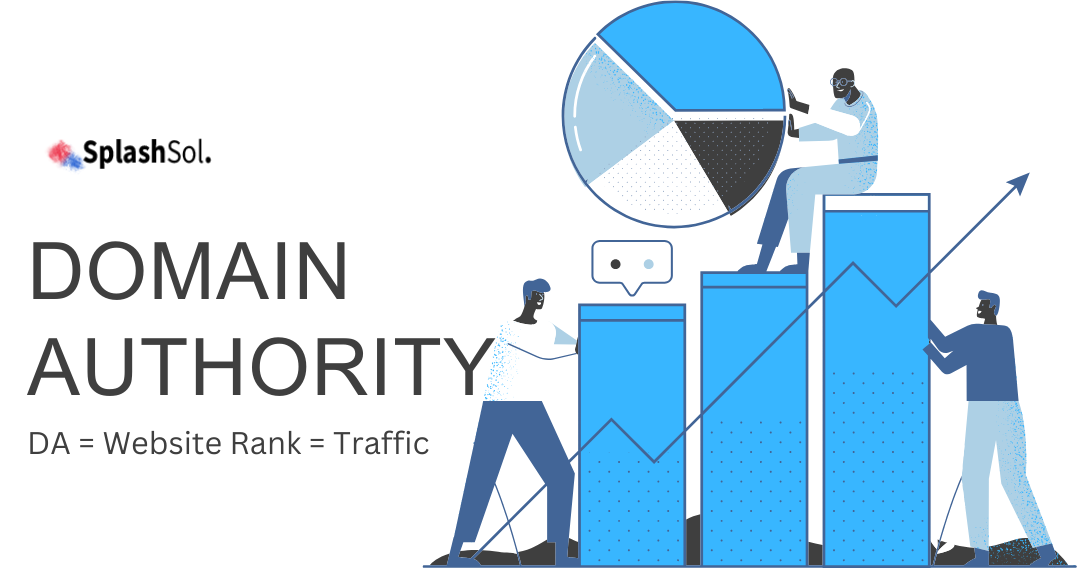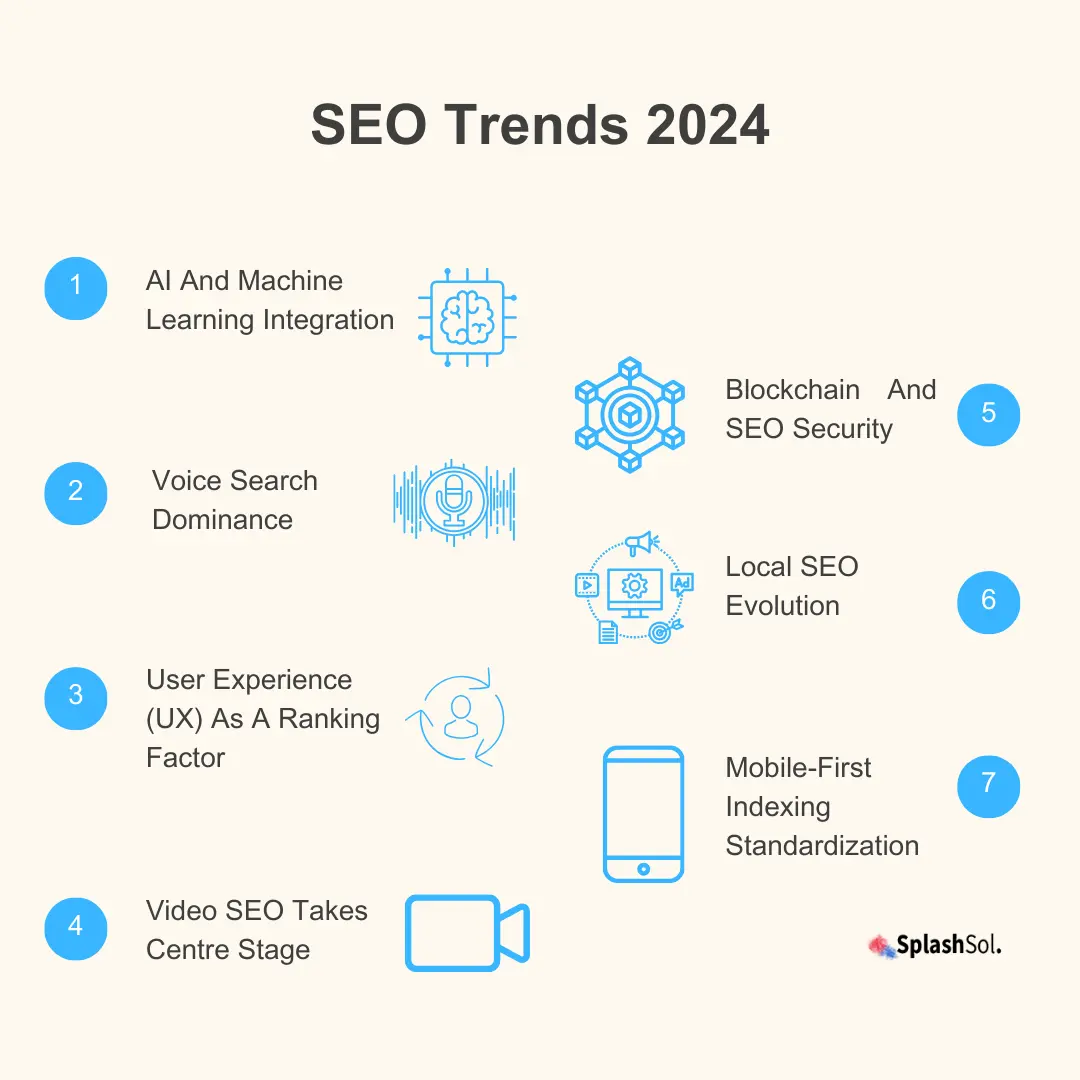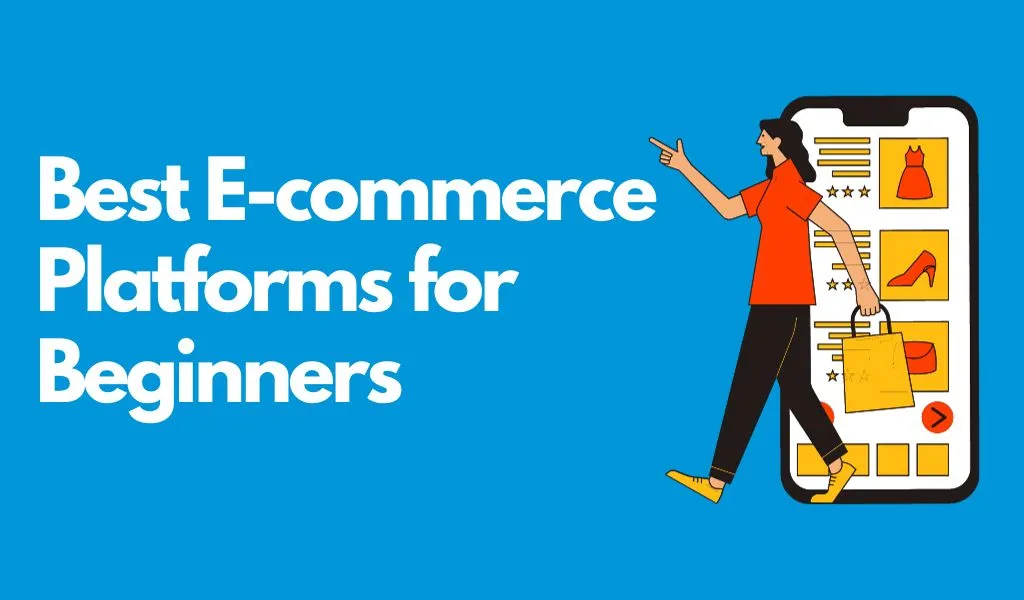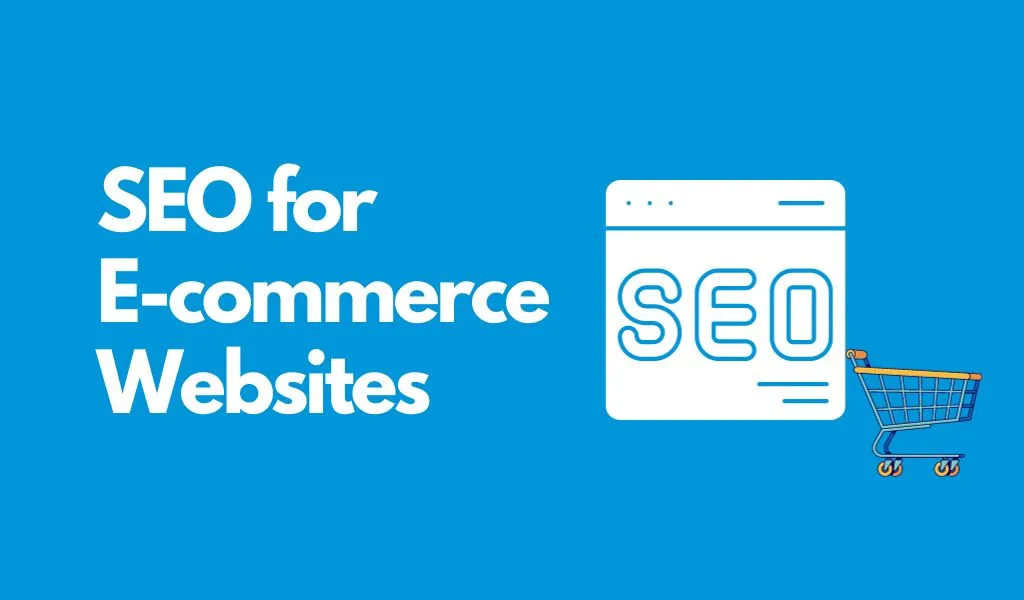Do you want to increase your business’s organic visibility and get more traffic on your website? Well, the answer is simple! SEO.
- 41% of large companies find link building the most challenging SEO aspect.
- 60% of marketers say SEO is better than PPC for generating sales.
- SEO leads have a 14.6% close rate.
- 61% of B2B marketers say SEO generates more leads than any other marketing initiative.
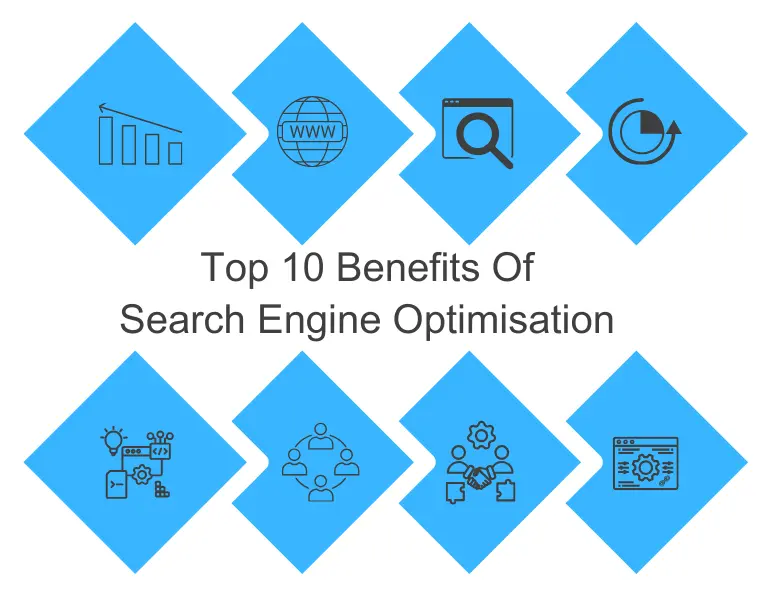
In today’s digital age, online visibility is paramount for businesses looking to thrive in the competitive world of the internet.
Search Engine Optimisation (SEO) has emerged as a powerful tool to enhance your website’s visibility on search engines like Yahoo, Google, and Bing.
It involves a series of techniques and strategies to improve your website’s ranking in search engine results pages (SERPs).
The benefits of SEO are numerous, and you should hire a local SEO agency, especially if you are new to this.
In this blog, you will explore the 10 most prominent advantages SEO offers to businesses and website owners. But before that, let’s understand what search engine optimisation is.
What Is Search Engine Optimisation?
Search Engine Optimisation (SEO) is a set of practices, techniques, and strategies aimed at improving the visibility and ranking of a website or web page in the organic (unpaid) search results of popular search engines like Google, Bing, and Yahoo. The primary goal of SEO is to increase a website’s visibility to users who are searching for relevant information, products, or services using specific keywords and phrases.
SEO involves various on-page and off-page optimisation tactics, including keyword research, content optimisation, website structure and design improvements, link building, and more.
The ultimate aim of SEO is to make a website more search engine-friendly and user-friendly, thereby enhancing its chances of appearing at or near the top of search engine results pages (SERPs) for specific search queries.
This increased visibility can lead to higher organic (non-paid) traffic and, in turn, improved online presence, user engagement, and potential for conversion and business success. A good e-commerce SEO agency can help you achieve these results.
| Aspect |
On-Page SEO |
Off-Page SEO |
Technical SEO |
| Definition |
Optimisation of elements on a webpage to improve its search engine ranking. |
Activities that are performed outside the website to improve its online authority and reputation. |
Focusing on the technical aspects of a website to enhance its crawlability and indexability by search engines. |
| Main Focus |
Content, Keywords, Meta Tags, URL Structure, Internal Links, HTML tags, etc. |
Backlinks, Social Signals, Guest Blogging, Online Reputation Management, etc. |
Site speed, Mobile-friendliness, Website structure, XML sitemaps, Robots.txt, Canonicalisation, and other technical elements. |
| Examples |
Creating high-quality and relevant content, optimising meta descriptions, and using appropriate keywords. |
Building high-quality backlinks from authoritative websites, engaging in social media marketing, and online PR. |
Implementing proper redirects, ensuring mobile responsiveness, fixing broken links, and optimising website speed. |
| Goal |
To improve the individual page’s visibility and relevance to search engines for specific keywords or phrases. |
To enhance the website’s credibility and authority in the eyes of search engines and users. |
To make sure that search engines can easily crawl, index, and understand the website’s content. |
| Impact on Ranking |
Has a significant impact on the ranking of individual pages for targeted keywords. |
Can influence the overall domain authority and ranking across multiple pages. |
Primarily affects how search engines interact with and index the website. |
| Visibility |
Directly visible to website visitors as it pertains to on-page content and user experience. |
Indirectly visible, as it relates to backlinks and reputation on external websites. |
Mostly not visible to users but affects how search engines interact with the website. |
| SEO Tools |
Keyword research tools, on-page SEO analysers, content optimisation software. |
Backlink analysis tools, social media management tools, online reputation monitoring tools. |
Crawling tools, site speed analysers, mobile-friendliness testing tools, structured data validators. |
| Frequency |
Requires ongoing updates and optimisation as content and keywords change. |
Ongoing efforts to build and maintain a positive online reputation. |
Regular maintenance and monitoring to ensure technical aspects are in good shape. |
The Main Elements Of SEO
Search Engine Optimisation (SEO) encompasses a wide range of elements and strategies to improve your website’s visibility and ranking on search engines. The main elements of SEO include:
| Keyword Research |
Identifying the right keywords and phrases that your target audience is likely to use when searching for information, products, or services. This forms the foundation of your SEO strategy. |
| Content Quality |
Creating high-quality, valuable, and relevant content that resonates with your audience. Content is a significant factor in search engine rankings and user engagement. |
| Mobile Optimisation |
Ensuring that your website is optimised for mobile devices, as mobile-friendliness is a crucial ranking factor, and an increasing number of users access the internet on smartphones and tablets. |
| Website Structure and Navigation |
Ensuring that your website has a clear and user-friendly structure with easy navigation. This includes creating an XML sitemap, optimising URLs, and using a logical site structure. |
| Page Speed |
Improving website loading speed, as both users and search engines prefer faster sites. Slow-loading websites may be penalised in rankings. |
| Technical SEO |
This includes optimising technical aspects like crawlability, indexability, and site architecture, and fixing issues like broken links, duplicate content, and HTTP status codes. |
| On-Page SEO |
Optimising specific elements on a webpage, such as titles, headings, meta descriptions, and image alt tags, to make them more relevant to the targeted keywords. |
| Off-Page SEO |
Building a strong online presence and reputation through techniques such as link building, social media marketing, and online reviews. High-quality backlinks from authoritative sources can positively impact your search rankings. |
| Local SEO |
For businesses with physical locations, optimising for local search is essential. This includes creating and optimising Google My Business profiles, getting local citations, and encouraging customer reviews. |
| User Experience (UX) |
Providing a positive user experience is crucial for SEO. This includes optimising page layout, usability, and ensuring that your site is easy to navigate and accessible to all users. |
| Analytics and Monitoring |
Regularly monitoring and analysing the performance of your SEO efforts through tools like Google Analytics and Search Console. This helps you track progress, identify issues, and make data-driven improvements. |
| Content Marketing |
Creating and promoting valuable and shareable content to attract backlinks and engage your audience. Content marketing is closely intertwined with SEO, as high-quality content is a significant ranking factor. |
| Social Signals |
While the direct impact of social media on SEO is debated, social signals (such as likes, shares, and comments) can indirectly influence your website’s visibility and traffic. |
| Structured Data (Schema Markup) |
Implementing structured data markup on your website to provide search engines with additional context and information about your content. This can enhance the appearance of your search results in the form of rich snippets. |
| E-A-T (Expertise, Authoritativeness, Trustworthiness) |
Apart from the direct ranking factors, there are ways in which you can improve the SEO of your websites indirectly. One of these is E-A-T. Google’s emphasis on E-A-T means that the expertise, authoritativeness, and trustworthiness of a website and its content are important ranking factors, particularly for topics that require expertise and trust. |
| International SEO |
For websites targeting international audiences, optimising for different languages and regions is essential. This involves hreflang tags, geotargeting, and other strategies to rank in multiple markets. |
10 Benefits Of SEO
Here are 10 advantages of why you should use SEO for your business or hire an SEO agency to do it for you.
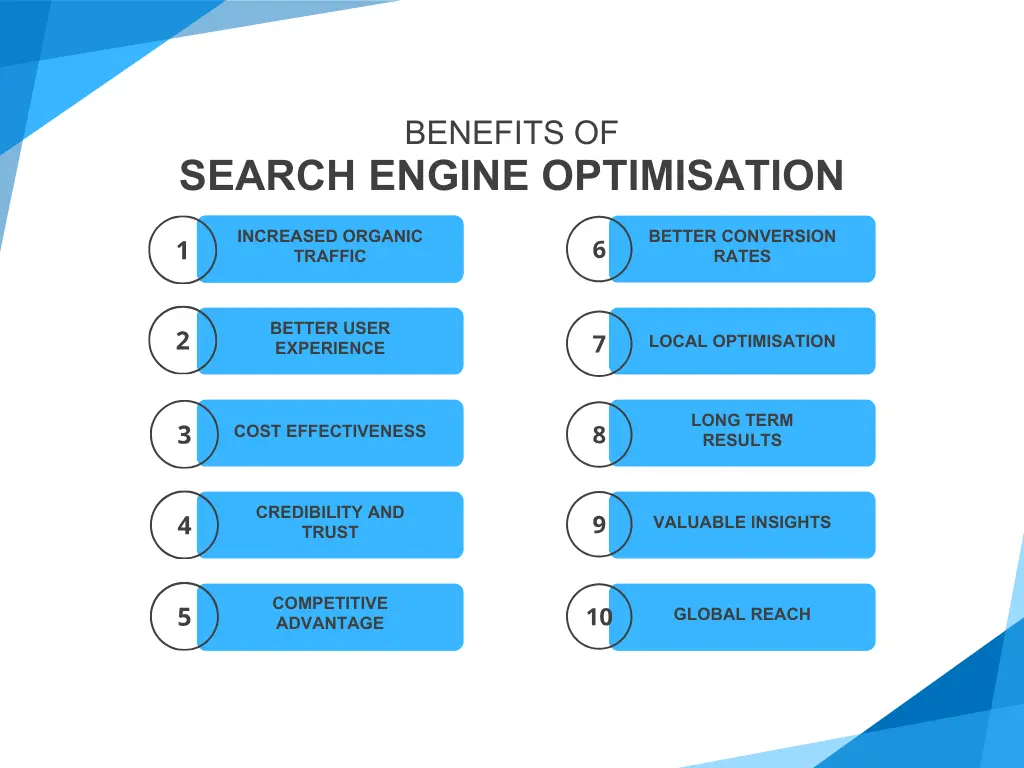
-
Increased Organic Traffic
The flow of website traffic is often likened to the foot traffic a physical store receives. Just as a bustling storefront in a prime location can significantly impact a brick-and-mortar business, the volume and quality of web traffic directly influence an online venture’s success.
Search Engine Optimisation (SEO) is the key to enhancing this virtual footfall, and its capacity to increase organic traffic is one of its most compelling benefits.
Organic traffic refers to the visitors who arrive at your website through unpaid, non-advertising channels such as search engine results. These users actively search for information, products, or services related to your niche, and they discover your website because it ranks well in search engine results pages (SERPs). Unlike paid traffic, which requires monetary investment in online advertisements, organic traffic results from SEO strategies and content optimisation.
- 53.3% of all website traffic comes from organic search.
- The #1 result in Google’s organic search has a 27.6% average CTR.
- Top 3 results get 54.4% of all clicks.
- 0.63% of Google searchers click on results on the second page.
- 39% of purchasers are influenced by a relevant search.
Role Of SEO In Boosting A Website’s Organic Traffic
SEO serves as the digital compass that guides the users to your virtual doorstep. By optimising your website for relevant keywords and phrases associated with your industry or offerings, you position your site to be highly visible in search engine results.
When a user enters a search query that aligns with your optimised keywords, your website appears among the top results, making it more likely to be clicked on.
This targeted traffic is qualitatively different from random, unqualified visitors. Users who find your site through search are actively seeking what you offer. They arrive with a purpose, whether it’s finding information, making a purchase, or seeking a service.
This intentionality sets them apart and gives them a higher potential for conversion into customers, subscribers, or engaged readers.
The Domino Effect: Higher Conversion Rates And Sales
- Increased organic traffic offers more than just higher visitor numbers.
- Key advantage lies in improved conversion rates.
- SEO-optimised content and user-friendly website enhance visitor experience.
- Relevant content and a well-structured interface cater to visitors’ needs.
- Decrease in bounce rate as visitors are more likely to engage with the site.
- Longer on-site durations, more page views, and higher likelihood of desired actions.
- Desired actions include making a purchase, filling out a contact form, or subscribing.
- SEO’s cumulative effect aligns web presence with target audience needs.
- Creates a virtuous cycle: increased visibility leads to more organic traffic.
- Higher conversion rates result in a boost in sales and business growth.
-
Better User Experience
SEO is not just about keyword optimisation; it also focuses on enhancing the overall user experience of your website. This includes improving site speed, navigation, and mobile-friendliness.
A well-optimised website will keep visitors engaged, leading to reduced bounce rates and higher chances of them becoming loyal customers.
-
Cost-Effectiveness
Compared to traditional advertising methods, SEO is a cost-effective way to promote your business. It allows you to reach a global audience without the high costs associated with print, radio, or TV ads.
Additionally, SEO provides measurable results, making it easier to track your return on investment (ROI).
-
Credibility And Trust
Websites that appear at the top of search engine results are often perceived as more credible and trustworthy by users. Implementing SEO strategies to achieve a high ranking can help establish your brand’s authority and reliability in your industry.
-
Competitive Advantage
Most of your competitors are likely investing in SEO, and if you’re not, you risk falling behind. By staying ahead in the SEO game, you can outperform your competitors and gain a competitive edge in your niche.
-
Better Conversion Rates
An SEO-optimised website not only attracts more traffic but also converts that traffic into leads and customers more effectively. Well-structured content and user-friendly design can make it easier for visitors to take desired actions, such as making a purchase or filling out a contact form.
-
Local Optimisation
Local SEO techniques help businesses with physical locations, such as brick-and-mortar stores or restaurants, to attract local customers.
This includes optimising your website for local keywords, setting up a Google My Business profile, and encouraging online reviews. Local SEO can significantly boost foot traffic and revenue.
-
Long-Term Results
While SEO may require some ongoing maintenance, the results it produces are generally long-lasting. Once your website climbs the search engine rankings, it can maintain its position for an extended period, providing a continuous stream of organic traffic.
-
Valuable Insights
SEO tools and analytics provide valuable insights into user behavior, such as the keywords they use, the pages they visit, and the time they spend on your site.
This data can help you make informed decisions and tailor your content and marketing strategies to your audience’s preferences.
-
Global Reach
With the right SEO strategies, your website can reach a global audience, enabling you to expand your business internationally. This opens up new opportunities for growth and diversification.
To Sum It All,
Search Engine Optimisation is a crucial digital marketing strategy that offers a wide array of benefits to businesses and website owners. From increasing organic traffic and enhancing user experience to building credibility and trust, SEO is a valuable tool for success in the online world.
It not only provides immediate results but also ensures long-term sustainability, making it a worthwhile investment for any business looking to thrive in the digital landscape.
If you are looking for a reliable SEO agency London to help your business grow, take help from Splash Sol, a leading company in the category.
Frequently Asked Questions
What is search engine optimisation?
Search Engine Optimisation (SEO) is a digital marketing strategy that involves optimising a website to improve its visibility on search engines like Google.
It encompasses various techniques such as keyword optimisation, content enhancement, and technical improvements to increase organic (unpaid) traffic and enhance a website’s ranking in search results.
How does search engine optimisation work?
Search Engine Optimisation (SEO) works by optimising a website’s structure, content, and external factors to align with search engine algorithms. This improves a site’s relevance for specific keywords, leading to higher search engine rankings.
SEO involves on-page and off-page strategies, such as keyword research, quality content creation, link building, and technical enhancements, to attract organic traffic and improve online visibility.
How to increase search engine optimisation?
- Keyword Research: Identify relevant keywords.
- High-Quality Content: Create informative, engaging content.
- On-Page SEO: Optimise titles, meta tags, and URLs.
- Technical SEO: Ensure website structure and speed are optimised.
- Mobile Optimisation: Make the site mobile-friendly.
- Quality Backlinks: Acquire authoritative, relevant links.
- Regular Updates: Keep content fresh and relevant.
What are the benefits of Search engine optimisation?
The benefits of Search Engine Optimisation (SEO) include increased organic website traffic, improved online visibility, higher search engine rankings, cost-effectiveness compared to traditional advertising, enhanced user experience, better conversion rates, and the ability to outperform competitors. SEO also provides valuable insights, local optimisation, and long-term sustainability for online success.




